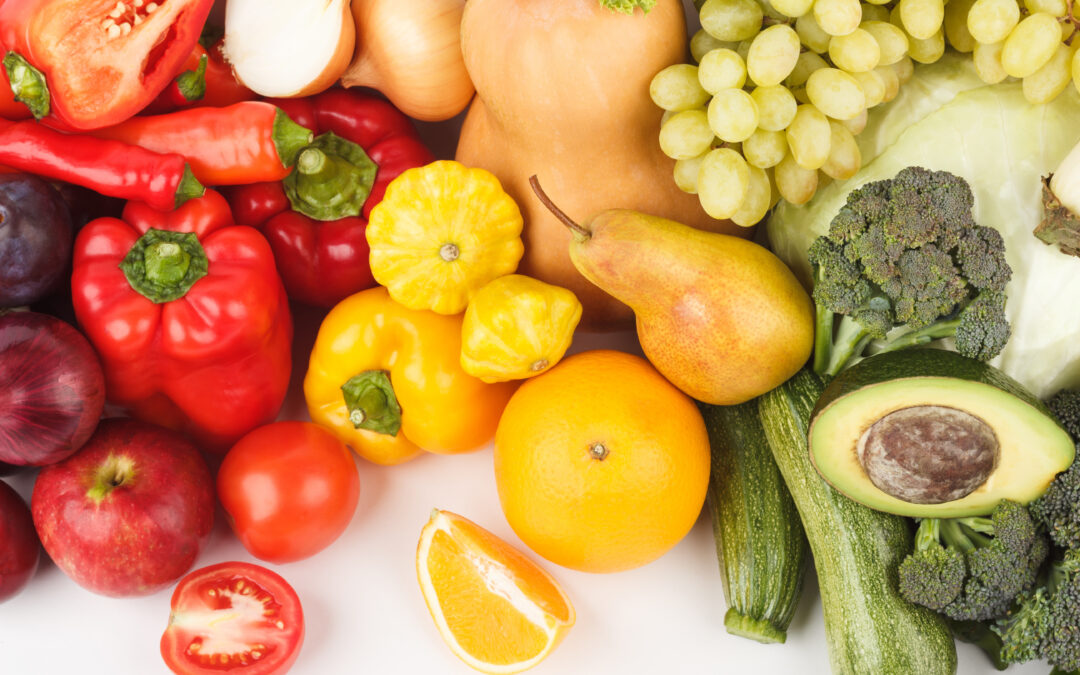If you have an autoimmune disease, chances are very high, that you are online and in various communities related to your diagnosis or autoimmunity in general. But these communities can be a double edged sword. They can be wonderful for support and encouragement, empathy and understanding, but they can also be rife with well meaning misinformation or even straight up judgement. If you talk about what you are really eating, you might regret saying anything. And what’s even more annoying is that you know you should do something about your diet. You’re sure it has something to do with your autoimmune disease – after all you always feel worse after eating at a restaurant, or at a friend’s house.
And there’s so much conflicting advice out there. The AIP diet or low FODMAP? What are nightshades? Why is gluten so bad?
The truth is there are many autoimmune diets out there, the secret I am here to tell you, is that NONE of them are the magic bullet.
But you need to find the right autoimmunity diet for you.
In fact, you don’t actually have to find a ‘diet’ you more need to understand the relationship between foods and your body in a specific, tailored sense. But a preformed ‘diet’ can be a good place to start as it provides framework. Just remember, diet is not religion! Don’t get hooked in to believing that a specific diet is the cure for you or that you have to do it perfectly to succeed. I wrote in the past that trying to do a diet perfectly may actually make things worse.
With that said – here we look at a few different diets you can personalise to get the most out of them, and at other factors that you need to consider. You’re an individual – let’s figure out the best plan for you.
What Is the AIP Diet and What Are the Drawbacks?
The Autoimmune Protocol Diet (AIP diet) is often the go-to diet for autoimmunity, as it’s designed to reduce inflammation by cutting out ALL of the foods that MIGHT be a problem. Even if only in theory. And in your search for a way to manage your symptoms you’ve likely encountered a friend or a website that describes it as life-changing.
The AIP diet focuses on eliminating foods that can cause leaky gut, a contributor to autoimmune disease. Instead, the diet focuses on foods that aid and heal your gut.
But should you be on the AIP diet?
That depends on a few factors.
One benefit is that the elimination phase includes removing many of the potentially harmful foods associated with autoimmunity, inflammation or gut-irritation. These include: gluten, grains, eggs, dairy, nightshades, legumes, coffee, refined sugar, and processed foods. And the reintroduction phase is slow enough to help you figure out what your food sensitivities are – you wait 5-7 days before reintroducing each food.
But if you’re already eating from a restrictive menu, it’s not wise to start at the elimination phase – you may need to begin at the reintroduction phase and move slowly.
And there’s always the danger that the AIP diet may affect your oral tolerance in the long term.
What is oral tolerance?
Oral tolerance describes how your immune system allows you to eat foods, while still defending against “intruders” such as bacteria and toxins. If you have an autoimmune disease, you’ve already lost self-tolerance – your immune system’s appropriate response to your own body tissues. As a result of this lack of self-tolerance, you’re more likely to lose other types of tolerance, such as chemical tolerance, and oral tolerance. In the case of oral tolerance, some people who try the AIP diet may find new food sensitivities arise – and symptoms may get worse.
The AIP diet is just one tool in helping you discover your food triggers and it’s not supposed to be the end of your food journey, so whether it helps you a lot, or causes you to lose some oral tolerance, it’s important not to stay on it long-term. I don’t recommend longer than 60 days before you start reintroductions. And if you are struggling to reintroduce anything, then I advise you seek professional support because your oral tolerance might need to be assess and addressed, which might be considerably more involved that just supporting ‘leaky gut’.
Should I Try the Wahls Protocol?
The Wahls protocol was created for patients with multiple sclerosis (MS) but many other autoimmune patients have adopted it. The Wahls diet is an adaptation of the paleo diet, which is born out of the desire to eat more like our early ancestors, avoiding processed, heavily farmed foods. In fact, the diet shares a lot of similarities with the AIP diet, but places more emphasis on eating plenty of vegetables and berries.
The Wahls diet has several different levels of restriction, depending on how able to commit you are and where you are in your journey, or the severity of your symptoms.
The Wahls diet is specifically designed to support the needs and health of the mitochondria (the part of the cell that makes energy), the brain and the nervous system.
And it has a strong focus on eating a lot of very nutrient dense foods. This requires a lot of food prep and if it’s not done properly and you are just eliminating the foods but not eating enough quantity of the therapeutic foods, then you may not get the benefits.
My overall opinion of the Wahls diet is high, it’s extremely nutritionally dense when enough of the therapeutic foods are eaten. Also Dr Wahls story is very inspiring. If you haven’t watched her TED talk called Minding my Mitochondria, I highly recommend it.
It also may not be as helpful as you hope if you have an autoimmune disease that doesn’t have the needs that this diet and approach meet, so again, don’t get fixated on this one diet as being the magic bullet that will cure you.
Also the Wahls diet is a GREAT example of something I often say, which is that you cannot define a diet by what is excluded! You have to focus on what is included. And sadly autoimmune diets are often about exclusion. The Wahls diet really focuses on eating a lot of nutrient dense foods, but this is where a lot of people fall short – they cut out the foods the are recommended but they do not eat all of the foods recommended in the quantities needed, and this is very important for success.
SIBO Diet vs Low Fodmap Diet
If you have existing gut issues, or a diagnosis of irritable bowel disease (IBD) you may be looking at other options. The SIBO diet and Low FODMAP diets are popular ways to counteract painful gastrointestinal symptoms. But are they right for you?
The SIBO diet was introduced to counteract the effects of small intestine bacterial overgrowth (SIBO). Normally, your small intestine moves bacteria and food down into your colon. When you have SIBO, this action is interrupted, leading to a buildup of bacteria in your upper small intestine. This increased bacteria starts eating your partially digested food before you have a chance to absorb the important nutrients. Instead they convert the nutrients into gas and other metabolites, and this can cause inflammation systemically, stress out the liver and create very distressing bowel changes.
SIBO symptoms include:
- Feeling tired
- Weakness
- Bloating
- Wind
- Unexplained weight loss
- Diarrhoea
- Constipation
- Abdominal pain
- Rashes
- Brain Fog
- Joint Pain
Do you notice how many of those symptoms are similar to IBS? Functional testing can be a great aid in getting more specific with what’s causing your gastrointestinal symptoms.
If it turns out to be SIBO, you can try the SIBO diet, which is another temporary elimination diet. It lasts 2-6 weeks, and focuses on eliminating, then slowly reintroducing, fermentable fibres, carbohydrates and sugars.
Another option in this same vein is the low FODMAP diet.
Low FODMAP and the SIBO diet actually overlap in many ways. While the SIBO diet focuses on anything that can ferment, it also quantifies how much is required to cause a problem.
Low FODMAP gets more specific – and can also help other unexplained gastrointestinal symptoms. FODMAPs are hard-to-digest carbohydrates (fermentable oligo-, di-, mono-saccharides, and polyols). FODMAP sensitivity occurs when the bacteria in your gut ferments these carbohydrates, producing hydrogen and causing IBS symptoms.
Note that the diet is low FODMAP, not no FODMAP. It would be too hard to eliminate all FODMAPs from your diet – the aim here is to reduce the amount of them as comfortably as possible without causing malnutrition.
This may mean:
- Avoiding most dairy, while still being able to eat hard cheeses, and lactose-free dairy products.
- Eating nuts and seeds – except for cashews or pistachios.
- Avoiding low quality meat, like sausages, that have added ingredients – but enjoying good quality cuts instead.
- Eating corn, rice, and oats, but not wheat, rye, or barley.
- Avoiding apples, peaches, apricots, and pears, but eating citrus fruit and grapes.
- Cutting out alliums, cruciferous vegetables, and mushrooms.
This is not meant to be a comprehensive list – there are a lot of guidelines to follow in order to get the most out of low FODMAP. If you have already done the AIP diet it may feel repetitive, but it’s important to leave no stone unturned when it comes to reducing the burden of poor digestion on your body.
Monash University in Australia are considered to be experts on the FODMAP diet, and have an app that people find very helpful in guiding them on the diet.
Alison Siebecker published the food plan that I use for the SIBO specific diet, and it’s found as a free resource on her website.
Detox Diet vs Mitochondria Support
After reading up on how toxins contribute to autoimmune flare ups, it’s tempting to try a quick detox diet. But fasting, followed by an overly strict diet, may not be the reset your autoimmunity needs. Furthermore, it won’t deal with the toxins in your environment, or necessarily improve your toxin elimination paths. You can’t ‘rest’ your organs by fasting, as you still need your liver and kidneys to filter out everything else that’s harmful. It’s better to support your liver and kidneys by eating foods that aid their function. Detoxificaion is nutritionally very expensive, meaning it requires a lot of protein, vitamins, minerals and antioxidants. Fasting won’t help you there because it restricts all of these essential nutrients.
And what about your mitochondria? They’re the wonderful little organs that create the energy that powers your cells. And there’s a connection between poor mitochondrial health and autoimmune disease – it’s been linked to lupus and rheumatoid arthritis as well as MS and neurological autoimmunity. Also, anything that leads to fatigue or brain fog is affecting your mitochondria So it’s a good idea to eat foods that feed your mitochondria!
Supporting your mitochondria may include eating:
- Nuts and green vegetables high in magnesium.
- Oily fish and avocado, which are high in good fats.
- Plenty of protein.
- Antioxidant rich foods.
The trick is to work these foods back into your diet slowly, so you’re sure there’s less chance of an autoimmune flare up caused by increasing fibre from the healthy foods, which can disrupt your microbiome when added in faster than your gut can adjust to it. There’s no point trying to support your mitochondria only to cause inflammation and further complications.
What Food Is Good for Autoimmune Disease?
Now, if the different types of diets aren’t confusing enough, you need to think about what your body needs on top of that. If you understand what nutrition your body needs, you can learn to feed yourself to thrive. It isn’t enough to just cut everything out – unfortunately, most of the diets and considerations in Part 1 are focused on what not to eat. We need to focus just as much on what to include.
And understanding what you can eat to nurture your body isn’t something you can learn immediately. Understanding your body’s responses to what you’re eating, and where to go from there, is a process. The key is, even if you use one of these diets as a starting point, you need to personalise it, and fine tuning your diet can take time. There are always going to be bumps in the road, and times in the future when you’ll need to change it up. But it’s worth it, to live with reduced autoimmune symptoms.
Most importantly, if you take away just one piece of advice let it be this: Try not to be attached to any one diet or dogma. Nutrition is not religion. There isn’t a perfect diet for autoimmunity. But there may be a tailored way of eating that suits you perfectly.
Need help in navigating autoimmune diets and learning how to tailor them to your individual needs? You’re in luck.
My clinical team and I are here to help you. Featuring a package of detailed consultations, guidance through functional testing, and support through making dietary changes, working with us allows you to take charge of your health in a truly individualised way. We also work on improving your sleep, reducing your stress, and look at changing environmental factors. Your autoimmune disease diagnosis is not the end of your journey. You deserve a new beginning.
Click here to book a call with me.
My signature course Foundations of Health is another tool to help you improve your health from the foundations up.
Like what I have to say and want to hear more? Sign up for my newsletter for monthly information from me including clinic updates, recommendations for podcasts and books that I have enjoyed each month and more.






